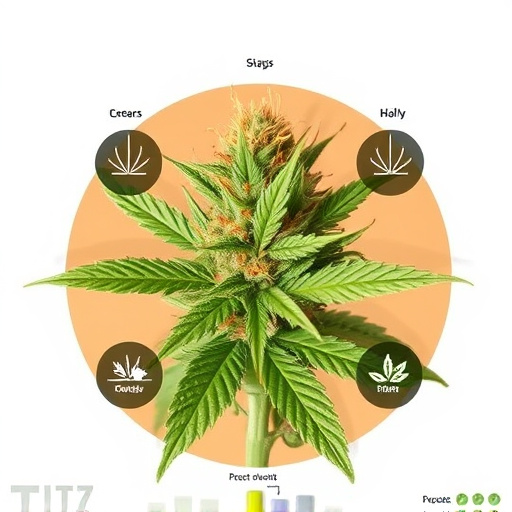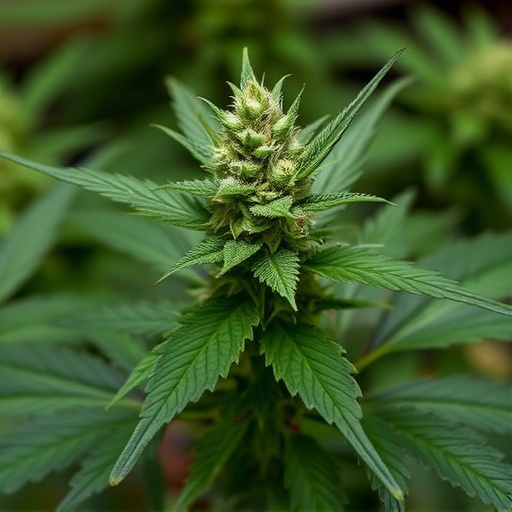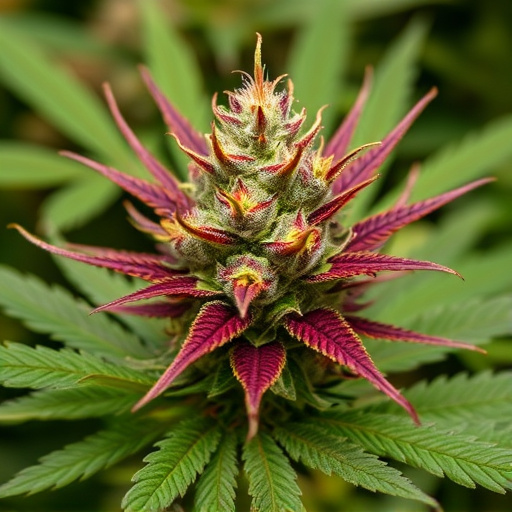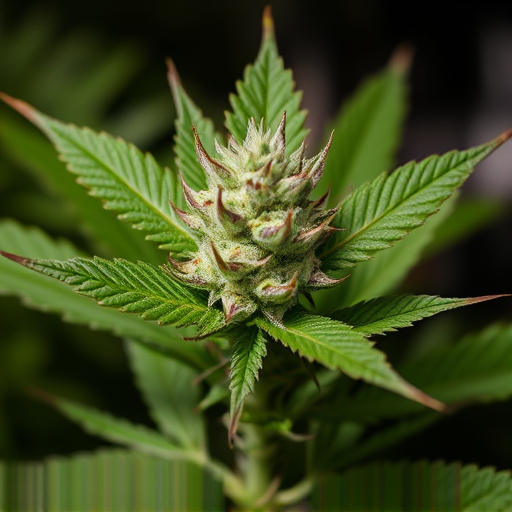TL;DR:
Every person's reaction to cannabis strains is unique due to individual biochemistry, leading to highly variable effects. The human endocannabinoid system (ECS) interacts with compounds like THC and CBD, but these interactions differ among people, resulting in experiences ranging from relaxation and creativity enhancement to euphoria or minimal changes. Understanding this biochemical complexity is vital for navigating cannabis strains effects, empowering users to make informed choices based on their unique responses, especially when considering medicinal applications. Factors like age, gender, health, and genetics also influence these effects, requiring personalized approaches for optimal benefits with minimal risks.
Discover why weed hits everyone differently. Cannabis strains effects vary widely based on a complex interplay of individual biochemistry, environmental factors, and strain specificity. Genetic predispositions, age, gender, and health influence how your body interacts with the endocannabinoid system. The setting, consumption method, and even meditation can alter perceived high. Learn about key cannabinoids, terpene profiles, and exploring different cannabis strains to tailor your experience.
- The Role of Individual Biochemistry
- – Genetic predispositions and biological variations in the endocannabinoid system
- – How age, gender, and overall health can influence cannabis effects
The Role of Individual Biochemistry
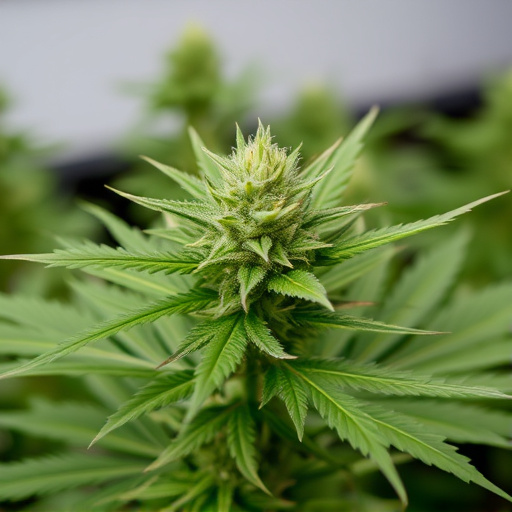
Every individual’s biochemistry is unique, which means that how they react to cannabis strains and their effects can vary greatly. This difference in response isn’t just about age or gender; it delves into the intricate chemistry of our bodies. The human endocannabinoid system (ECS), responsible for regulating various physiological processes, interacts with cannabis compounds, primarily tetrahydrocannabinol (THC) and cannabidiol (CBD). But the way these compounds bind to receptors in the ECS can differ from person to person.
This variability leads to diverse cannabis strain effects. For some, a particular strain might induce a sense of calm and relaxation, while for others, it could enhance creativity or stimulate appetite. The same strain might make one person feel euphoric, while another experiences minimal psychological effects. Understanding this biochemical interplay is key to unlocking the true potential—or challenges—that cannabis offers, ensuring individuals can make informed choices based on their unique reactions.
– Genetic predispositions and biological variations in the endocannabinoid system
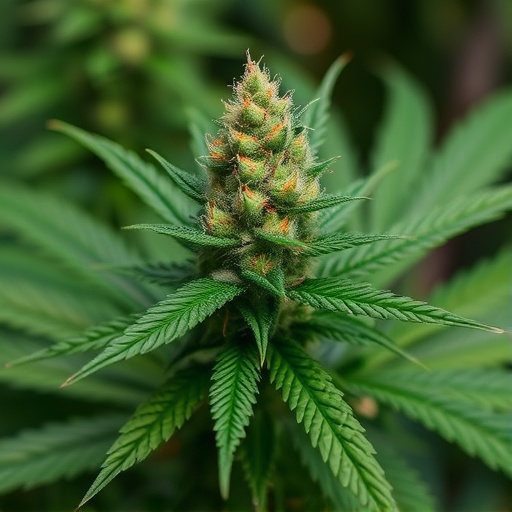
Everyone’s experience with cannabis is unique, and a significant factor contributing to these varying effects is genetic predisposition. The human endocannabinoid system (ECS), responsible for regulating various physiological processes, including pain sensation, mood, appetite, and memory, plays a pivotal role. Genetic variations in the ECS can influence how an individual interacts with cannabis compounds, such as THC and CBD. These interactions determine the potency of effects, including euphoria, relaxation, or potential anxiety and paranoia.
For instance, some people have genes that make them more sensitive to THC’s psychoactive effects, leading to a stronger high. Others may have variations that impact the way their bodies process CBD, resulting in different therapeutic outcomes. Understanding these genetic predispositions is crucial for predicting how different cannabis strains might affect individuals. It also highlights the importance of personalized approaches when using cannabis for medicinal purposes, ensuring the best possible results with minimal adverse reactions.
– How age, gender, and overall health can influence cannabis effects
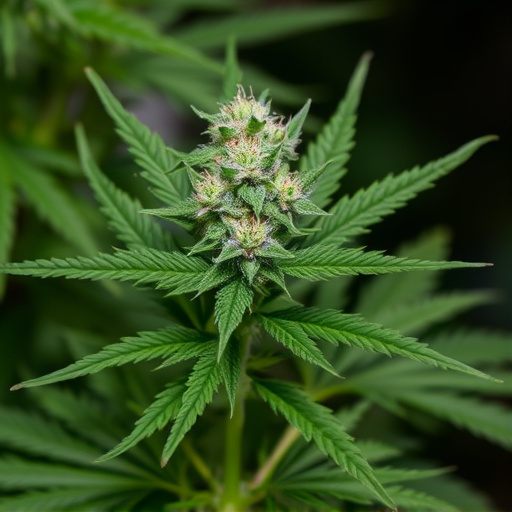
The impact of cannabis on individuals can vary greatly, and several factors play a role in these differing experiences. Age is a significant consideration; younger minds are still developing, so cannabis may affect them differently than adults. Adolescents might be more susceptible to long-term cognitive impacts, while adults may experience the therapeutic benefits with reduced risk. Additionally, gender matters; research suggests that women may have a higher likelihood of experiencing anxiety and paranoia from cannabis, while men could be more prone to heightened creativity and relaxation.
Overall health is another critical aspect. Individuals with pre-existing medical conditions might find relief through specific cannabis strains effects, but they must consult healthcare professionals first. Conversely, those with mental health issues may need to exercise caution as cannabis can sometimes exacerbate symptoms. The interaction between cannabis and various physical and mental states underscores the importance of personalized approaches when considering the use of different cannabis strains for their effects.
Every individual’s experience with cannabis is unique due to the complex interplay of their biochemistry, genetic makeup, and personal characteristics. The way cannabis strains affect people can vary greatly, from euphoric relaxation to heightened sensitivity or even adverse reactions. Understanding these variations is key to navigating the world of cannabis, ensuring a safe and enjoyable experience for everyone, regardless of whether they prefer indica or sativa dominant strains.








